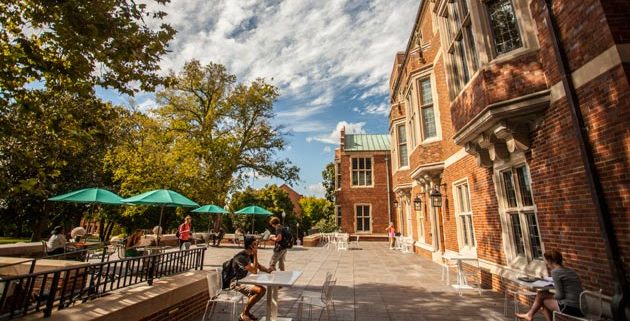Vanderbilt is increasing annual stipends for its nearly 1,900 doctoral students for the next academic year. The increase follows discussions among students, faculty, deans, Provost C. Cybele Raver and Vice Provost C. André Christie-Mizell during a 2023 listening tour. Graduate Student Council executive leaders also presented in December and January the findings from a recent survey of students’ financial needs to senior university leaders, who found the presentations particularly effective, clear and compelling.
“In response to the insightful data presented by the Graduate Student Council, the deans and I were able to find creative solutions during this budget cycle that allow us to continue to enhance our support of all doctoral students, beginning in the next fiscal year,” Raver said.
Beginning in the 2024-25 academic year, stipends for Ph.D. students will increase to a range of $34,000 to $38,000.
The stipend increase is part of a broader long-term initiative aimed at expanding financial aid provided to Ph.D. candidates at Vanderbilt. Previous increases in support include a $5 million annual investment from the Office of the Provost launched during the 2022–23 academic year, including the Launching Student Success Supplement, which provides newly admitted Ph.D. students with $2,000 to help defray relocation costs. Doctoral students also benefit from waived tuition and receive health insurance, dental coverage, annual eye exams and payment of certain fees. The total package of financial aid provided to doctoral students exceeds $75,000 per student, per year.
“Right now, only 4.6 percent of our Ph.D. graduates take out loans,” Christie-Mizell said. “This initiative seeks to further reduce the need for students to borrow and underscores our commitment to doctoral students’ success in their educational and research trajectories.”
“We are seeing feedback from graduate students produce real outcomes; this eases the burden that the cost of living in Nashville imposes. We will continue to annually survey graduate students on their living conditions and provide that feedback to the deans and the provost,” said Kyra Smart, GSC president and a fourth-year biomedical engineering candidate.
In addition to raising stipends, the university will increase housing support for graduate students. In the near term, this will include making a housing emergency a qualifying event for receiving student support funds; establishing a housing resource office to help with housing-related needs; and creating a website consolidating housing-related resources in one easily accessible place. Longer term, the university will collaborate with GSC, landlords and real estate companies to create additional housing support.
“This increase in stipends and housing is in response to what we’ve heard from students and reflects the importance of doctoral students to discovery, innovation and our university culture,” Raver said. “We look forward to further collaboration with GSC to support Ph.D. students’ success.”

